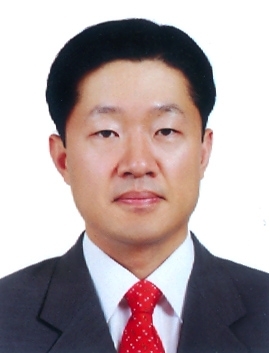 |
Woo Tae-hee |
Recently I went to Brunei to engage in the first round of the Regional Comprehensive Economic Partnership, or RCEP, negotiations in my capacity as Korea’s lead negotiator. RCEP is not well known to the general public despite its importance and potential to our economy. The RCEP aims to create a free trade area in Asia, currently with the participation of 16 countries including Korea, Japan, China, Australia, New Zealand, India and 10 ASEAN countries.
This opening meeting follows the official declaration of leaders of the 16 RCEP participating countries on the launch of the negotiation on the margin of the East Asia Summit held in Cambodia last November. At that time, leaders of 16 countries jointly declared their firm commitment to achieving a modern, comprehensive, high-quality and mutually beneficial economic partnership agreement and to aim to complete the RCEP negotiations by the end of 2015.
Following the leaders’ instruction, the first round of RCEP negotiations focused on establishing the overall negotiation structure and setting out general directions on how to move negotiations forward. While every participating country engaged in the negotiation in a constructive way with the full awareness of the importance of this historic meeting, the negotiation included the battle of nerves on which country would take the initiative in various areas and which country would play a major role to set the tone.
The opening round of RCEP negotiations has made concrete achievements and confirmed all participating countries’ willingness to make this negotiation move forward while addressing diverse views and interests in every issue.
The first achievement, if I count on my fingers, will be the establishment of the RCEP Trade Negotiating Committee and three initial Working Groups on Goods, Services and Investment. With the establishment of the RCEP TNC and three working groups, we successfully set up the overall negotiation structure of the RCEP negotiation and pave the way for the establishment of additional working groups in other areas.
Secondly, we have made good progress on how to move forward in the areas of goods, services and investment by exchanging our views and exploring how to plan the way forward to materialize future liberalization. Even though it may take additional time to have concrete languages agreeable to all participating countries, each country shared the view that we came to be closer to each other through the intensive discussion at the first meeting.
Thirdly, all participating countries agreed on work plans for when to hold second and third rounds of the negotiations. The second round will be held in Brisbane, Australia, in September this year and the third round will be held in Malaysia in January next year. All the progress made at this first RCEP meeting will be reported to the first RCEP ministerial meeting scheduled in August in Brunei. We expect that RCEP negotiation will gain momentum with the guidance of RCEP ministers for the successful conclusion of the RCEP negotiation.
Nowadays, we have witnessed several regional integration initiatives such as RCEP, TPP (Trans-Pacific Partnership), and TTIP (Trans-Atlantic Trade and Investment Partnership). The TPP is a regional economic integration covering Asia-Pacific area. In the course of the TPP negotiation, Pacific countries including the United States are regarded as playing more major roles than Asian countries.
The TTIP is a bilateral FTA negotiation between the United States and the European Union, but the development of the TTIP will inevitably have a serious ripple effect on other regional economic integration initiatives. Along with TPP and TTIP, the RCEP will lead to one of the world’s most powerful trading blocs and have significant impacts on the world economy.
It is also noteworthy that RCEP includes three of the largest economies in the world ― China, India and Japan. A successful RCEP would lead to the creation of an integrated market with a combined population of over 3 billion people, representing 49 percent of world’s population and with a combined GDP of about $20 trillion, or 28 percent of the world’s GDP based on 2011 figures. When it comes to the combined trade, RCEP would exceed TPP by approximately 3 percentage points, representing 28 percent of world trade.
Considering its size and potential, there is no doubt that a successful RCEP would significantly contribute and boost global trade and investment as well as our domestic economy. However, the negotiation process will not be an easy one, since the participating countries in RCEP have different levels of development and different economic structures.
For Korea, we already have bilateral FTAs with 10 ASEAN countries as well as with India. Moreover, bilateral FTA negotiations are underway with other RCEP participating countries. How to incorporate the outcome of bilateral FTAs into the RCEP negotiations and how to prioritize between them would be another key challenge for Korea.
One of the reasons for Korea to join the RCEP negotiation is to upgrade existing FTAs’ market liberalization level and achieve comprehensive FTA package. However, we are fully aware that a comprehensive and high-level FTA cannot override the legitimate concerns from sensitive sectors and those concerns will be duly reflected in the course of the every FTA negotiation including the RCEP.
It is well known that Korea has significant FTAs including the Korea-U.S. FTA and the Korea-EU FTA. Based on this experience, Korea would like to take a facilitating role to bridge the gap between developed countries and developing countries among RCEP participating countries. Our real journey has just begun. It would be very hard to make progress without cooperation, coordination and collaboration among RCEP participating countries. As a middle grounder, Korea will do its best to bridge the gap between RCEP participating countries to move forward for a successful RCEP.
By Woo Tae-hee
The writer is assistant minister for trade chief negotiator for FTAs in the Ministry of Trade, Industry and Energy. The opinions reflected in the article are his own. ― Ed.








